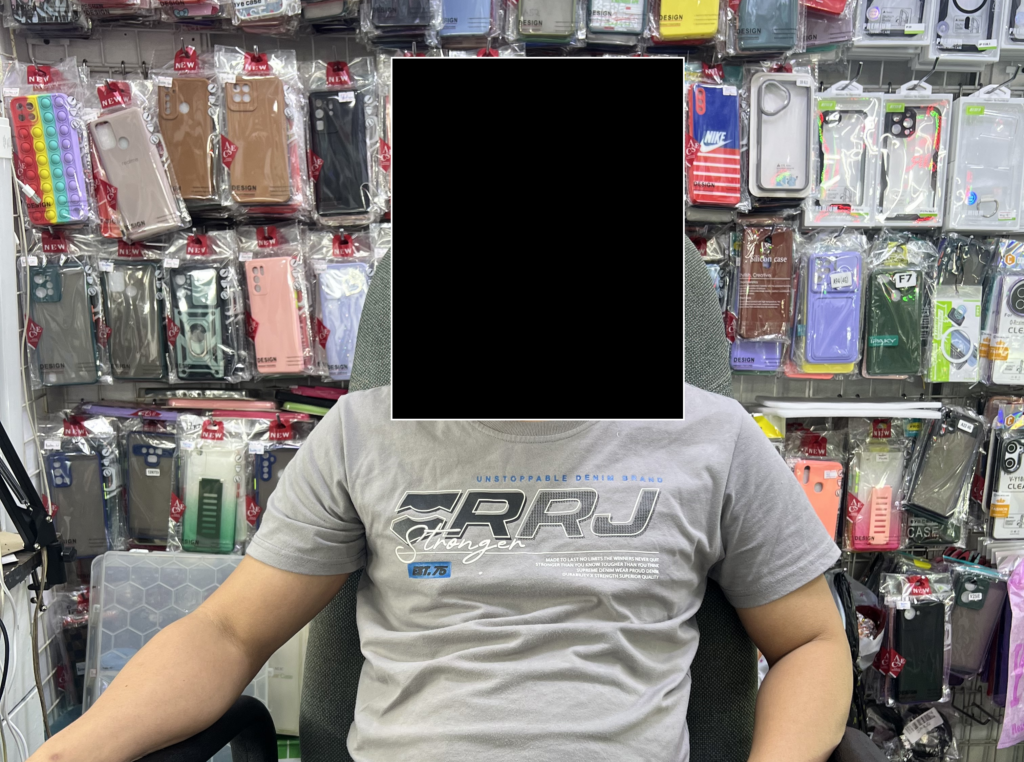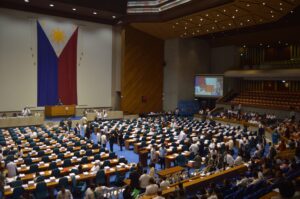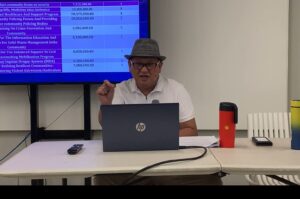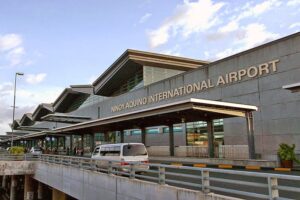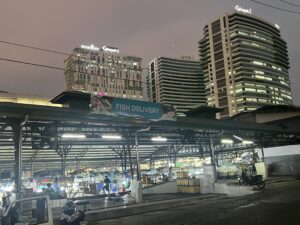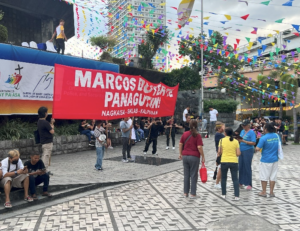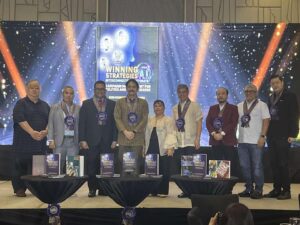The store where he has his puwesto is located on the fifth floor of Farmers Plaza in Cubao—he has had an agreement with the primary holder of the lease of the stall to pay her half of whatever he earns in a day, and in exchange, he will be allowed to conduct his cellphone and laptop repair business within her rented stall. His entire operation occupies a little less than half of the 4-square-meter cellphone shop.
I had brought my broken iPhone to this store a little over a week ago, and while waiting that day for him to determine the cause of the problem and finish replacing the screen of my broken phone, I thought of engaging him in a conversation as I noticed the familiar accent of first language speakers of Hiligaynon when they speak Tagalog. Hiligaynon is the dominant language of the people on most of the island of Panay and the western side of Negros island. This and Cebuano happen to be my mother tongue.
More importantly, I think, was that he sounded “honest” enough to me. The repairmen in the nearby stalls told me that it would cost nine to ten thousand pesos to replace the screen of my two-year-old iPhone 13 ProMax. In a shop near my house in Mandaluyong, the quote was 13,500 pesos, exclusive of labor. He, meanwhile, told me that it would only cost me 7,500 pesos, all in.
Angelo (not his real name), 34, moved to Manila about a year and a half ago after working for ten years in a cellphone repair shop in Bacolod. He currently lives with his partner, also 34, and their five- and two-year-old sons in Sauyo, Quezon City. He has a 13-year-old daughter with his first wife who is now in Talisay City, some 20 minutes away from the capital city of the province of Negros Occidental. He and his first wife, he shared, parted ways because of the latter’s cheating. They separated amicably and ended all communication between them.
He decided on moving his second family to Manila when an opportunity to begin a new life in a new place presented itself.
His wife currently has a sari-sari store that was originally run by the wife’s older sister who got fed up (tamad na) with the daily operation of her small store.
When this older sister asked the couple if they wanted to take over the running of her sari-sari store, they gladly packed their belongings and brought their young children with them to Manila. The couple shares the house in Sauyo with this older sister who herself has her own children who are of age and are working overseas.
On average, Angelo earns 1,000 pesos every day; there are days, however, when he takes home nothing. If this happens, the stall owner and he agreed that he will not pay his rent for that day. The two of them work on the basis of trust, according to him. On a good month, he is able to take home a total of 40,000 pesos.
In his over a year of work in Manila, he has already made some investments in things needed for his work. He recently purchased a microscope to allow him to repair smaller parts of a phone that he would not otherwise be able to fix if he were to rely solely on his naked eyes.
His wife, meanwhile, earns about 500 pesos daily in her G-cash cashout business. She charges 20 pesos for every 1,000 pesos that is cashed out by a customer on this e-wallet. They do not anymore strictly account for the earnings of their sari-sari store as they get some of their daily food supply from the items they sell in it. He, nevertheless, told me that they spend about 10,000 pesos every month to replenish their inventory. “Pinapaikot lang naming ang benta,” he added.
Given that his wife dabbles with financial transactions involving mostly their neighbors and sometimes strangers, he is a little concerned about her safety, but he believes that this is a risk they have to take as a couple. One time, he and his wife were swindled with their 25,000 pesos. A wholesaler offered to sell them frozen meats that they could retail for a profit. They were asked to come up with the amount in cash, which meant that they had to open their alkansya, which is the only way they save their extra cash.
They had to count there and then the content of this thrift box that held mostly 20-peso coins. The scammer took their money and left behind only 3,000 pesos worth of frozen meats, promising to get the rest of the stock but never came back.
This experience did not, however, dampen his belief in the benefit of saving his money in an alkansya over opening a bank account, which, according to him requires the submission of documents that are difficult to come by and does not give him the same ease of access to his money.
When asked what he does to prepare for the future of their two children, he said (with pride in his voice) that he had already bought an actual piggy bank and will not anymore use an empty 7-liter Wilkins mineral water bottle as alkansya. Both he and his wife do not have SSS, Pag-ibig, nor Philhealth. But he recalls having his wife inserted with an IUD after she gave birth to their younger son courtesy of Philhealth. Angelo does not recall ever paying his taxes.
Angelo’s parents are now both in their late sixties and had already retired some years ago from working their farm back in Negros. This plot of land measures a little less than 1 hectare, about 7,000 square meters; Angelo shared that they harvest about 60 to 70 sacks of palay every planting season, which is about two to three times a year.
This is sufficient to buy his parents’ food, medicines, and other needs. Angelo sends home 1,000 pesos every month to buy feeds for the sow his parents are raising. His father and mother, in turn, sell the piglets of this nayón. He does not expect that he be given his share in the profits for selling the piglets.
Angelo finds his life in Manila better than in the province, and he has no plans of going back to his life in the countryside or Bacolod City any time soon. He is generally happy and is optimistic about his future and his family’s. “Nakakakain kami ng maayos dito.”
(John Ryan Recabar does research on Southeast Asia, specifically Vietnam, and he hopes to re-sharpen his skills in the Vietnamese language. He is currently finishing his PhD in Anthropology at the University of the Philippines Diliman. In his free time, he walks his dogs and feeds stray cats at a nearby park.)

